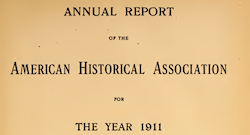Mrs. Robert Toombs to Alexander H. Stephens.
Washington, D. C., Jan. 1st, 1861[i]
Dear Sir: I write a few lines to you this morning to ask you what I shall do with your furniture that is in our house. I have despaired of the Union and will begin to pack up my own things today. If you can do anything you must be at it. I have given up the ship notwithstanding your old friends’ opinion in a telegram of the morning papers; I mean Messrs. Douglas and Crittenden.[ii] I shall go home with Mr. Toombs when he goes to the convention.[iii] I will take great pleasure in having your things packed and shipped or will do anything with them that you desire. You have the following articles: a carpet, bedstead, feather bed, mattrass, bolster and pillows, bowl and pitcher, bureau, couch, shovel and tongs, etc. Please let me know as soon as you can what to do with them. We will send the most of our things home, for we can’t get one cent for them here.I hope you are well.
[i] Erroneously dated Jan. 1, 1860, in the original.
[ii] In reply to a telegraphic inquiry addressed to them by eight citizens of Atlanta asking whether there was any hope of Southern rights in the Union, Crittenden and Douglas had telegraphed, Dec. 30, 1860: “In reply to your inquiry, we have hopes that the rights of the South, and of every state and section, may be protected within the Union. Don’t give up the ship. Don’t despair of the Republic.”
[iii] The Georgia secession convention, to which Toombs had been elected a delegate from Wilkes county.
From Annual Report of the American Historical Association for the Year 1911.
Robert Toombs had married his childhood sweetheart, Martha Juliann “Julia” DuBose.
Alexander Hamilton Stephens was an American politician who served as the vice president of the Confederate States from 1861 to 1865. After serving in both houses of the Georgia General Assembly, he won election to Congress, taking his seat in 1843. After the Civil War, he returned to Congress in 1873, serving to 1882 when he was elected as the 50th Governor of Georgia, serving there from late 1882 until his death in 1883.
